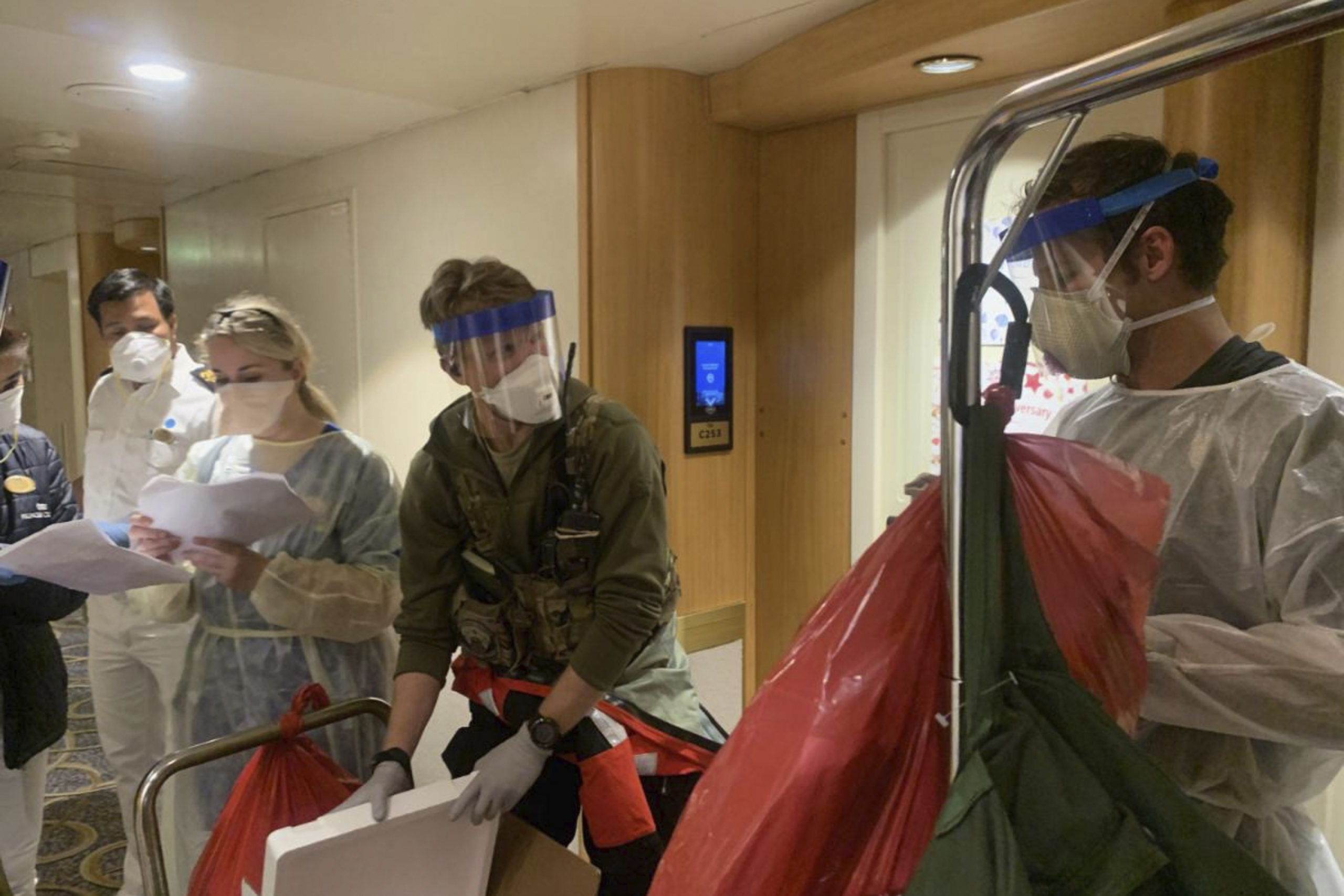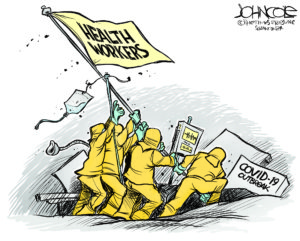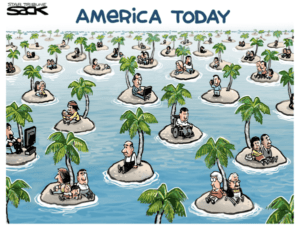Cash-Strapped Hospitals Can’t Handle the Coronavirus
Years of budget cuts have destroyed our health care system, just when we need it most. The California National Guard and Guardian Angels, working alongside officials from the Centers for Disease Control and Prevention, deliver virus testing kits to the Grand Princess cruise ship off the coast of California. (Chief Master Sgt. Seth Zweben/California National Guard via AP)
The California National Guard and Guardian Angels, working alongside officials from the Centers for Disease Control and Prevention, deliver virus testing kits to the Grand Princess cruise ship off the coast of California. (Chief Master Sgt. Seth Zweben/California National Guard via AP)
Opponents of nationalized health care argue that a government-run health system would lead to health care rationing, forcing patients to go without critical care because the government can’t afford it. Rationing, however, is exactly what American hospitals in our private health care system are now facing with the advent of the new coronavirus.
The Seattle Times reported on Saturday that “health care providers say medical supplies are growing scarce, threatening to further stress a system already scrambling to control the coronavirus outbreak.” In some areas of Washington state, particularly hard hit by the coronavirus outbreak “health authorities are hunting for medical supplies and have called on employees to ration.”
One hospital in the Seattle area is monitoring certain patients remotely. Others, Politico reports Tuesday, “are conserving respirators, by scaling back on drills in which health care workers practice wearing them.”
The situation is not limited to Washington. As Politico explains, hospitals around the country have for years been encouraged to “cut costs and reduce in-patient treatments,” in the name of reducing America’s health care spending.
The federal government over the last decade “has rewarded hospitals that reduced the number of patients who walked through the doors.” These incentives haven’t necessarily lowered overall health care costs in the United States, but they certainly have reduced hospital resources.
Per Politico:
In 2015, scientists from [the Health and Human Services Department, the Centers for Disease Control and Prevention and the U.S. Food and Drug Administration] warned that resources would be squeezed during a large-scale public health emergency.
Since then the number of staffed beds in the United States has declined, dozens of hospitals in rural communities across the country have closed and President [Donald] Trump, in his most recent budget, called for an $18 million cut to the hospital preparedness program.
Now that the coronavirus has arrived and is quickly spreading, hospitals and local public health officers are scrambling to keep up — and worried about a prolonged outbreak.
Even hospitals with contingency plans will have to make difficult decisions. “Given that we’ve had a month or more of prep time, we have created contingency plans and will have additional beds available … but the actual ICU beds and ventilators are somewhat fixed and those numbers are what they are,” Mark Mulligan, director of NYU Langone Health’s division of infectious diseases and immunology, told Politico.
In addition to a lack of equipment and other resources, some health care providers are worried about the spread of infections throughout hospitals, and the impact on hospital staff. “Health care workers are my top worry,” Dr. Peter Hotez, dean of the National School of Tropical Medicine at Baylor College of Medicine in Houston, told ProPublica in March.
Approximately 15% of hospital workers in China have become severely ill from the coronavirus, he explained, adding, “If this takes place in the U.S., and we see those numbers of workers sent home or in the ICU, being taken care of by their colleagues, things will start to unravel. This is the soft underbelly of our preparedness system right now.”
Read the full Politico story here.
Your support matters…Independent journalism is under threat and overshadowed by heavily funded mainstream media.
You can help level the playing field. Become a member.
Your tax-deductible contribution keeps us digging beneath the headlines to give you thought-provoking, investigative reporting and analysis that unearths what's really happening- without compromise.
Give today to support our courageous, independent journalists.






You need to be a supporter to comment.
There are currently no responses to this article.
Be the first to respond.